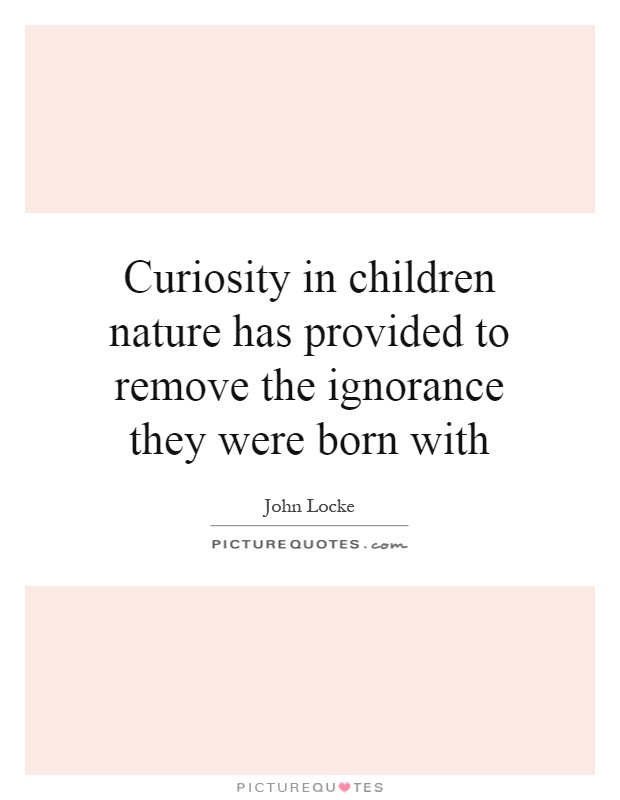Curiosity in children nature has provided to remove the ignorance they were born with

Curiosity in children nature has provided to remove the ignorance they were born with
John Locke, a prominent philosopher of the 17th century, believed that children are born with a blank slate, or tabula rasa, and that their experiences and interactions with the world shape their understanding of it. In this context, curiosity in children can be seen as a natural instinct that drives them to explore and learn about the world around them. Locke argued that this curiosity is essential for removing the ignorance that children are born with and for developing their understanding of the world.Curiosity is a powerful force that drives children to ask questions, seek answers, and engage with their surroundings. It is through this curiosity that children learn about the world, develop new skills, and expand their knowledge. Locke believed that children are naturally curious and that this curiosity is essential for their intellectual development. By encouraging children to explore and question the world around them, parents and educators can help them to overcome their ignorance and develop a deeper understanding of the world.
Locke also believed that children learn best through experience and observation. By allowing children to explore their environment and learn through trial and error, parents and educators can help them to develop their understanding of the world. Curiosity plays a crucial role in this process, as it motivates children to seek out new experiences and learn from them. By encouraging children to be curious and explore their surroundings, parents and educators can help them to overcome their ignorance and develop a deeper understanding of the world.












 Friendship Quotes
Friendship Quotes Love Quotes
Love Quotes Life Quotes
Life Quotes Funny Quotes
Funny Quotes Motivational Quotes
Motivational Quotes Inspirational Quotes
Inspirational Quotes